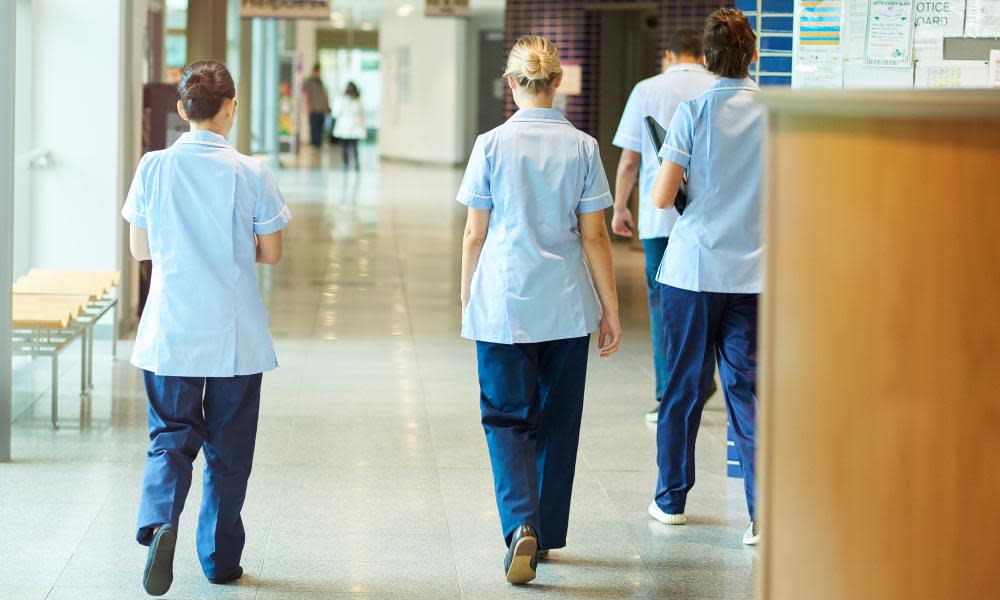NHS nurses not eating at work in order to feed their children, survey finds

Some nurses are so hard up that they are having to not eat at work in order to feed and clothe their children, research among hospital bosses has found.
Lack of money is also prompting some NHS staff to call in sick in the days before they get paid because they can no longer afford the travel costs for their shift. Others are taking a second job outside the NHS in an effort to make ends meet.
The impact of the cost of living crisis on health service workers in England has emerged in a survey of chief executives, chairs and other senior figures in health trusts undertaken by NHS Providers, which represents trusts.
Related: Most UK medical students struggle to afford essentials, survey finds
Miriam Deakin, the director of policy and strategy at NHS Providers, said: “There are heart-rending stories of nurses choosing between eating during the day and being able to buy a school uniform for their children at home.
“Increasing numbers of nurses and other staff, particularly in the lower pay bands, are finding they are unable to afford to work in the NHS.”
More than a quarter (27%) of trusts already operate food banks for staff, and another 19% plan to open one, to help relieve the acute financial difficulties faced by staff.
The survey also found that some staff:
Are stopping contributing to their NHS pension in order to free up cash.
Cannot fill up their cars because of petrol price rises.
Have mental health issues due to the stress of paying their bills.
The situation is so serious that some low-paid health staff, such as healthcare assistants, are quitting their jobs in the NHS and taking better-paid roles in pubs and shops instead, NHS chiefs said.
Two-thirds (68%) of trusts said that staff leaving for better terms and conditions elsewhere was having a “significant or severe impact”, and exacerbating existing recruitment and retention problems.
Deakin said: “Trust leaders are seeing a slowdown in people willing to join the NHS, as well as looking to join other industries such as hospitality or retail which offer more competitive pay. The sad fact is some can earn more working for online retailers or in supermarkets.
“It’s like the UK has gone back to Victorian times, when workers were so poor they couldn’t afford to feed their families,” said Sara Gorton, head of health at the union Unison.
“This is a shocking state of affairs. Ministers should be ashamed that things have come to this.”
The Guardian reported last month how trusts are trying to help staff cope with soaring inflation through a variety of schemes, including offering hardship grants, paying for children’s school uniforms and providing low-cost food in their restaurants.
Trusts are bracing themselves for a potential wave of strikes this winter by staff angry at the government offering them only a 3% pay rise at a time when inflation is about 10%. One trust boss said that possible coordination of walkouts by different groups of workers could make it difficult for normal services to be maintained.
NHS Providers also found cost of living pressures were affecting patients, with more people attending A&E with related mental health issues. Some patients who had to visit hospital regularly had started to only attend some appointments because of the travel costs involved.
A government spokesperson said: “We know NHS staff are struggling with cost of living pressures, and we have given over 1 million NHS staff a pay rise of at least £1,400 in line with the recommendations of the independent pay review body.
“The government has also taken action to save a typical household an average of £1,000 a year on energy bills through a new ‘energy price guarantee’ – protecting them from soaring energy costs.”


